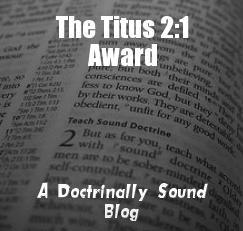
The other day I posted my review of Alister McGrath’s The Passionate Intellect. One thing I didn’t mention in this review was this paragraph:
When properly and legitimately applied, the scientific method is religiously neutral — neither supportive nor critical of religious beliefs. This means that scientific atheists have to spin science in certain ways in order to maintain their core dogma that science disproves religion. And since the scientific method clearly does not entail atheism, those who wish to use science in defense of atheism are obliged to smuggle in a series of non-empirical metaphysical ideas to their accounts of science and hope that nobody notices this intellectual sleight of hand. (111)
McGrath goes on to describe how Dawkins “represents genes as active agents, in control of their own destiny and ours” (112). Much of what Dawkins writes about this is metaphysical speculation.
I think the key qualification in McGrath’s assertion is “properly and legitimately applied.” What does that mean? McGrath doesn’t say. Nor does he go into the effects of sin on the human mind in applying and interpreting the scientific method.
I thought about this further as I was reading the November issue of The Atlantic yesterday on my flight back from BC. There’s an article by David H. Freedman, “Lies, Damned Lies, and Medical Science.” It’s about Dr. John Ioannidis and his studies regarding medical research. Medical research, it turns out, is rather fickle. And some of that can be traced back to human failings in the scientific process. Freedman writes:
We think of the scientific process as being objective, rigorous, and even ruthless in separating out what is true from what we merely wish to be true, but in fact it’s easy to manipulate results, even unintentionally or unconsciously. “At every step in the process, there is room to distort results, a way to make a stronger claim or to select what is going to be concluded,” says Ioannidis. “There is an intellectual conflict of interest that pressures researchers to find whatever it is that is most likely to get them funded.”
This is somewhat different than what McGrath was speaking about. The smuggling in of metaphysical assumptions is different than manipulating the scientific process, but the two are not unconnected. In fact, metaphysical presuppositions can lead one to consciously or unconsciously manipulate data at various stages of the process — from the way a question is posed through to the way the answers are interpreted.
Ioannidis published a paper with a detailed mathematical proof demonstrating that “researchers will come up with wrong findings most of the time.” So much for scientific objectivity or neutrality. Freedman describes this further:
Simply put, if you’re attracted to ideas that have a good chance of being wrong, and if you’re motivated to prove them right, and if you have a little wiggle room in how you assemble the evidence, you’ll probably succeed in proving wrong theories right. His model predicted, in different fields of medical research, rates of wrongness roughly corresponding to the observed rates at which findings were later convincingly refuted: 80 percent of non-randomized studies (by far the most common type) turn out to be wrong, as do 25 percent of supposedly gold-standard randomized trials, and as much as 10 percent of the platinum-standard large randomized trials. The article spelled out his belief that researchers were frequently manipulating data analyses, chasing career-advancing findings rather than good science, and even using the peer-review process — in which journals ask researchers to help decide which studies to publish — to suppress opposing views.
Now all of that is in reference to what we call “operational science,” regarding scientific observations and research in a world that can be tested and observed in the here and now. Imagine then what happens in the realm of origins science, or historical science. If scientists can often be wrong in what they can observe now, how much more so when they theorize about what happened eons ago? The effects of sin on the human mind and on science should never be discounted or minimized. Even the best science is done by sinners. There is only one absolutely reliable source of public, objective truth. Dr. John Byl has more to say about all this.


